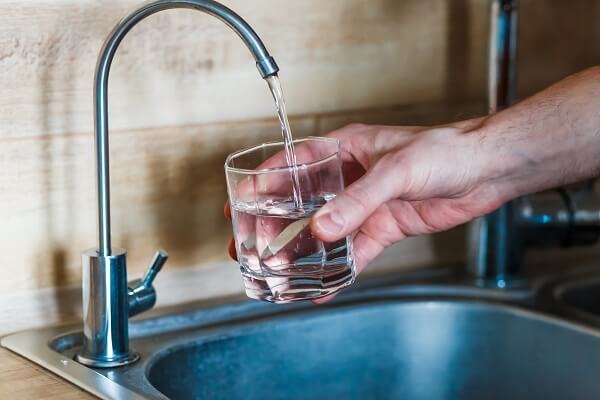Water is one of the basics of life that you can’t do without. Besides nourishing your body, water has many other functions such as cleaning and gardening. Drinking contaminated water can affect your health.
Water is supposed to be odorless and tasteless. If your tap water suddenly has a taste or smell, it’s time you install a filter in your home. Water filters aim to purify the water you use at home. This article will assist you in deciding the appropriate water filter.

Understand Your Source Of Water
Different sources can avail water in your home. Knowing your water source will help you learn the possible contaminants available in your water. Perform a water test to identify the specific constituents. If you source your water from a private well or borehole, hire a professional to perform the test. Ensure the professional is certified.
Alternatively, ask a provider to carry out the test for you and advise you accordingly. It’s recommended to consult a health care professional beforehand to inform you of the tests you need to take. This way, you’ll not waste time and money performing unnecessary tests that won’t give you the information you need. If your water source is from your local council, request a water report as they perform these tests periodically. The report will show all that’s contained in the water.
Another tell-tale sign of the contaminants in your water is the location of your home. Suppose you live in an area next to an industry; there’s a high possibility of heavy metals being present in your water.
Know Why You Need A Filter
Identify the reason you need a filter to determine the type of water filter you require. Do you want to filter only your drinking water, kitchen water, or the whole house? There are filters available for each of these purposes.
Understand what contaminant you need to get rid of from your water. Some filters only remove germs and fluoride while others remove some metals. This information gives you a contaminant to focus on as you select the right water filter.
Also Read: w7 Household Uses Of Harvested Rainwater
Vet The Available Water Filters
Consider the speed of filtration and what the filter does as you vet the available options. Some filters take time to filter while others are quick. Go for a filter that works faster if you need it for an activity you frequently do such as cooking. Select a slow one if you need the filter for your drinking water.
Filters purify your water using different mechanisms such as ion exchange, mechanical processes, and distillation. These mechanisms determine the type of contaminants removed. Water softening, for instance, uses the ion exchange mechanism, which gets rid of magnesium and calcium. Reverse osmosis, a mechanical process, gets rid of sediments, fluoride, nitrates, and others.
Complex mechanisms remove more contaminants in comparison to those utilizing simple processes. The complexity also determines the cost of a water filter.
Some of the commonly used water filters are:
-
Faucet-Mounted Filters
The filters can be in-built or be placed at the mouth of the tap. Water gets filtered as it exits your tap. The majority of such systems have a switch that you put on and off depending on your need for filtered or unfiltered water. The in-built faucet is more expensive than the one whose filter is at the mouth.
-
Under The Sink Filters
This filter is situated under your kitchen sink. As water flows through the kitchen pipe, it passes through the filter before reaching the tap. This method doesn’t affect the rate of flow of water.
-
On-Counter Filters
Use on-counter filters to purify your drinking water. No plumbing is required in their installation. Connect the filter to a socket and fill it with water. The water you get from these filters is already purified.
-
Whole House Filters
These filters purify water in your whole house, from your bathroom to your kitchen to your sinks. Most of the entire house filters utilize the reverse osmosis process for purification.
Also Read: The Importance of Proper Water Heater Maintenance
Consider Cost
Water filters are available at different prices based on their performance characteristics. Keep in mind the initial cost of acquiring the filter, installation, and maintenance costs. The initial cost of a filter is dependent on its size, quality, and performance, as earlier mentioned. The more complex installing a water filter is, the more it’ll cost you. Some filters require hiring a professional to do the installation, unlike on-counter filters that you can do yourself.
Maintenance cost is often left out as costs of an appliance are being considered. Water filters require maintenance for them to function efficiently. Most water filters require frequent changing of their filters, some more occasionally than others.
Consider all these costs as you select your home water filter and purchase one based on your budget, both short-term and in the long run.
Conclusion
Selecting a water filter for your home should be done with some background information such as the one this article provides. Use an expert to install a complex water filter for your home. You don’t want to install one on your own only for it to fail or get damaged.